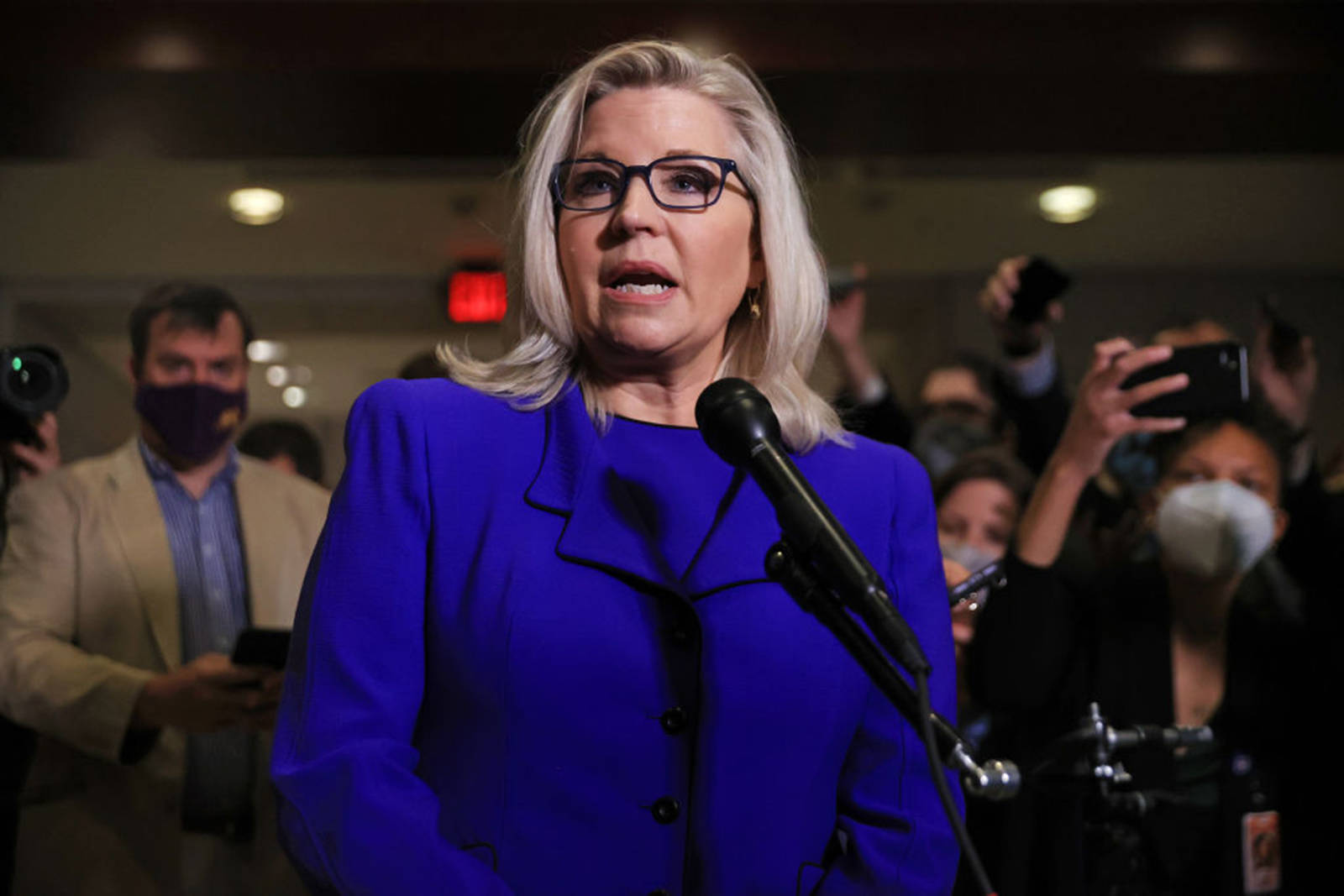WASHINGTON, D.C. — House Republicans on Wednesday voted to depose Rep. Liz Cheney of Wyoming from her leadership position as conference chairwoman, a repudiation of her criticism of former President Donald Trump.
It took the fractured GOP Conference less than 20 minutes to remove Cheney from her role as the No. 3 House Republican, including time spent on prayer and the Pledge of Allegiance.
House Republicans made the decision to remove her by voice vote rather than a full tally, which means it is not yet clear the exact degree of support for her ouster. Cheney was steadfast exiting the closed meeting where her colleagues voted her out of leadership, maintaining her stance on Trump’s lies.
“I will do everything I can to ensure that the former president never again gets anywhere near the Oval Office,” she told reporters. She said Wednesday’s vote is a clear indication of the path that the GOP is on as a party, tethered to Trump, and sent a warning to Republicans: “We cannot be dragged backward by the very dangerous lies of a former president.”
In a floor speech Tuesday night, Cheney warned that Trump is a dangerous element that the party should leave behind.
“Today we face a threat America has never seen before: a former president who provoked a violent attack on this Capitol, in an effort to steal the election, has resumed his aggressive efforts to convince Americans that the election was stolen from him,” Cheney said. “He risks inciting further violence.” She said Trump was on a “crusade to undermine our democracy.”
The decision to remove the staunch Wyoming conservative and daughter of former Vice President Dick Cheney signals a tremendous break from the Republican Party of old; the party now is beholden to Trump.
Cheney was booed in the meeting when she criticized Trump, but also received a standing ovation at the end of the meeting. Multiple members said she was applauded in recognition and appreciation of her service, not support for her position.
As Republicans emerged from the closed-door meeting, some were reluctant to say how they voted. Those who did attempted to divert from the party fracas to criticize the Biden administration.
Cheney lost key support from her House GOP leadership colleagues in a cascade of opposition emerging in recent weeks. Minority Leader Kevin McCarthy put out a letter to his GOP colleagues last week saying that her ouster was required to bridge “internal divisions” that could derail the party’s efforts to reclaim the House majority in the 2022 midterm elections. “Each day spent relitigating the past is one day less we have to seize the future,” McCarthy wrote. “If we are to succeed in stopping the radical Democrat agenda from destroying our country, these internal conflicts need to be resolved so as to not detract from the efforts on our collective team.”
Some GOP members tried to remove Cheney from her leadership spot in February following her vote to impeach Trump for his role in inciting the violent Jan. 6 attack on the Capitol.
But Cheney survived that challenge, winning a 145-61 caucus vote, with the backing of McCarthy.
In contrast to that victory, when Cheney’s team announced the results after that vote, Wednesday’s voice vote Wednesday means that the proportion of support that remains for Cheney is not clear. But the tide has turned against her, and top leaders have made their allegiance to Trump clear and backed the former president’s calls for Cheney’s removal.
McCarthy, along with Minority Whip Steve Scalise, endorsed Rep. Elise Stefanik of New York to replace Cheney.
Stefanik came to Congress as the then-youngest woman ever elected to the House and as a mainstream moderate Republican, but subsequently emerged as one of Trump’s most vehement defenders in the House.
She joined the 138 House Republicans who voted to object to the Electoral College counts in Pennsylvania and she spoke on the floor on the night of Jan. 6, after the rioters had left a trail of destruction and injury at the Capitol, to reiterate false claims that the election was fraudulent.
Stefanik launched her official bid for GOP Conference Chair just a few minutes after the vote on Cheney, focusing on the 2022 midterm elections, without a mention of the 2020 election.
“We know that the American people overwhelmingly reject the radical Democrats’ socialist agenda, but we need to ensure they are hearing our unified conservative vision on the issues that matter to them,” she said in a statement.
But Stefanik may not have a smooth ride into leadership, as opposition is emerging from some of her conservative colleagues.
Texas Republican Chip Roy, a member of the House Freedom Caucus, sent a letter to every GOP member arguing that Stefanik is not fit for leadership, while also saying that Cheney shouldn’t be conference chair.
“We must avoid putting in charge Republicans who campaign as Republicans but then vote for and advance the Democrats’ agenda once sworn in,” Roy wrote.
Data compiled by CQ Vote Watch shows Cheney voted the same way other Republicans did far more often than Stefanik during Trump’s presidency, especially after Democrats took control of the House in 2019.
Cheney’s “party unity score” was never lower than 96 percent from 2017 through 2020, while Stefanik’s scores were at 88 percent and 87 percent in 2017 and 2018, dropped to 68 percent in 2019, and then rose to 82 percent in 2020.
Cheney also voted more often than Stefanik for the positions Trump took.
In 2019, for example, Cheney voted for the positions Trump supported 97% of the time, compared with 93% for the average Republican and 61% for Stefanik.
The timeline for a vote on Cheney’s successor isn’t set, but Wisconsin Republican Bryan Steil alluded to a decision as soon as the end of the week. “That will all wash out on Friday,” Steil said.


